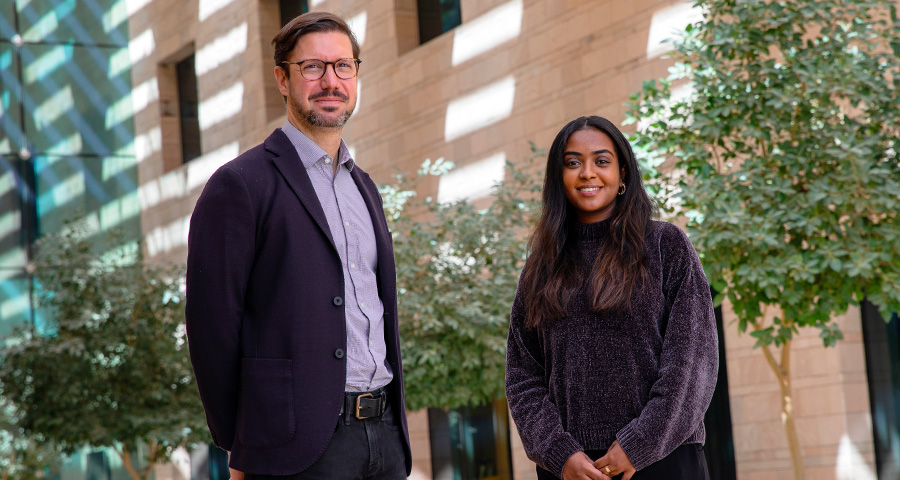
Student research explores link between women’s education, economic growth
A business administration student at Carnegie Mellon University in Qatar (CMU-Q), a Qatar Foundation partner university, is exploring the link between women’s education and economic growth. Nour Mohamed tackled the research project for her College Honors thesis, which she will present in April before graduation.
Mohamed was inspired to learn more about the gender gap in education during a CMU-Q service trip to Morocco before the pandemic.
“I noticed that there was a big difference in the ages of children we were teaching. The boys were very young—maybe six or seven years old—but the girls were in their teens. I’ve always been passionate about topics of inequality and this experience sparked my interest in girls’ education around the world.”
For her project, Mohamed looked at the impact of women’s participation in post-secondary education on economic development over a five-decade period. She analyzed data on educational attainment by gender across 146 countries, as well as information on GDP from the World Bank.
Typically, studies in this area have focused on girls’ education at the primary and secondary levels. “There is significant research that shows that as we close the gender gap in primary education, specifically within developing countries, there is progress in economic development. There hasn’t been as much research into the economic benefits of women pursuing higher education, and that is the focus of my research.”
Mohamed’s findings were initially surprising. “I found that post-secondary level education has a positive impact on economic growth within high income countries, but for low and middle income countries, that wasn’t the case,” she said.
She believes this is due to the U-shape hypothesis, which suggests that as countries progress from primarily agricultural to industrialized economies, women’s participation in the labor market initially goes down before it increases.
Mohamed’s faculty advisor for the project is Agustín Indaco, assistant teaching professor of economics. He believes Mohamed’s findings suggest an optimistic outlook for developing countries.
“We have seen that in high income countries, women’s increased level of post-secondary education in the 1970s and 1980s is having a positive economic impact now. There is good reason to think that as more women in developing countries pursue higher education, that in the coming decades, those countries will also see economic growth.”
For Mohamed, the project has been a very rewarding experience.
“When I took my first econ classes, I realized this is such a broad field. I will graduate with a minor in economics, and to do research in economics about a subject that I am passionate about, it was the perfect picture for me.”
